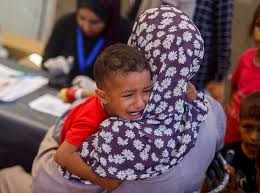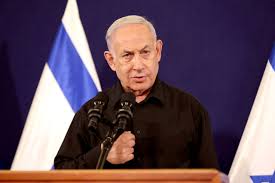
F.P. Report
LONDON: The Conflict, Stability and Security Fund (CSSF) is a cross-government fund that supports and delivers activity to tackle instability and to prevent conflicts that threaten UK interests. It has been a catalyst for a more integrated UK government response to fragility and conflict, including delivering the UK National Action Plan on Women, Peace & Security (WPS) 2018-2022.
In line with the Yemen Gender Strategy and the MENA Gender Strategy, Yemen CSSF funds projects, which aim to increase women’s meaningful and representative participation in peacebuilding and peace processes. It supports the implementation of the UK National Action Plan on Women Peace and Security and the UK’s goals as set out in the Integrated Review: to be a force for good, support open societies, protect human rights, and prevent and tackle conflict and instability.
Project content and requirements
Yemen remains one of the worst places in the world to be a woman and was placed at third from the bottom of the recent global WPS index(1). Entrenched and patriarchal gender roles mean that women and girls are particularly affected by negative gender stereotypes, limited political participation in peace and decision-making processes, restricted access to services, a discriminatory legal system, economic vulnerability and higher likelihood of gender-based violence (GBV).
The conflict has exacerbated gender inequalities and has contributed to worsening conditions for women and girls. These inequalities are now further exacerbated by the Covid-19 pandemic.
Women, men, girls and boys have hugely varied lived experiences which depend not only on their gender, but also on other aspects such as class, disability, ethnicity, migrant status, geographic location and other factors. This requires continual context and gender analysis and consultation with diverse Yemeni voices to understand complex and nuanced needs and capacities, so that the needs of different groups of women are met.
This is highly relevant to women’s participation and influence in political processes across Yemen. While women’s political participation remains low around the world(2), the figures for Yemen are particularly shocking, where women constitute less than 1% of members of parliament and local councils. There are still very few women in public decision-making roles, despite this being one of the objectives of the National Dialogue Conference of 2014.
In the 2018 Peace Talks in Stockholm the percentage of women negotiators was 4%(3) showing that women’s participation in peace processes remains low with little improvement.
Therefore, it is evident that while women peacebuilders are active at the informal levels in Yemen, they are often side-lined in the more formal elements of peace processes at multiple levels.
Peace processes are intrinsically political, and women’s exclusion from peace processes is likely to be linked to their wider exclusion from political, social, economic and public life.
Similarly, women’s exclusion from peace processes can have a wider impact on their future political participation, as peace processes are often responsible for establishing a political settlement, constitution building and defining the structures which will determine who holds power through the transition and into the future. Women’s political participation and their inclusion in all levels of a peace process are therefore intertwined.
Women’s participation in peace processes has also been linked to better peace outcomes(4).
Increasing women’s political participation as a first step to their wider inclusion in peace processes is therefore likely to be key in seeking a lasting resolution to the crisis in Yemen.
Yemen Conflict, Stability and Security Fund (CSSF) aims to directly support the meaningful inclusion of women in the political process at all levels; including increasing women’s representative participation in peace processes.
Objectives
In support of this, the CSSF is looking to fund a project to effectively influence formal and informal political structures in Yemen to help create an enabling environment for women’s meaningful political participation and inclusion. The project will mainly target a diverse range of partisan and non-partisan political actors (of all genders) across Yemen and in the diaspora to:
address the knowledge gap on women’s meaningful participation and influence within Yemen’s political formal and informal structures, by carrying out contextualised and localised mapping and gender analysis of these structures. The project will seek to understand the experiences of women, including the barriers they face to political participation, and will look at the impact of women’s political participation and its linkages with peacebuilding and peace processes. This will also provide practical recommendations for female and male actors on how to advance women’s participation, not only quantitatively but also qualitatively, and influence within these structures. Analysis should include measures to promote women’s safety when participating in political or public life and, where possible, consider less-explored areas including the role of digital/social media and women’s political participation
through consultations with a diverse pool of political actors and decision-makers (of all genders), partisan and non-partisan, identify and provide support in areas where support is needed, in order for women not only to be present but also to be active participants in political or public life. In addition, support women actors and civil society to develop key policy priorities, and advocate, with key political parties for their inclusion in any future national-level peace agreement
better understand existing linkages, and support and build new linkages between female and male political actors and civil society organisations to lobby and advocate for women’s meaningful political participation at all levels of peace processes in Yemen
The CSSF invites bidders to design a Theory of Change (ToC) and Results Framework, highlighting relevant assumptions, based on the above objectives, as part of the bidding process.
Proposals should clearly outline timeframes, costs, risks and sustainability. Activities should take an inclusive, multi-stakeholder approach, working with local organisations and partners wherever possible.
Bids for the project should address:
how your organisation is well-equipped with the expertise and resources for this project
your organisation’s proposed approach to delivering, measuring progress and monitoring the impact of each phase. Bids should include a particular focus on how they shall measure the value for money impact of their proposed approach. Strong proposals will be high-impact interventions, defined by clear evidence of the potential to deliver solutions that are sustainable and/or scalable
how your organisation will identify and mitigate any risks, given the sensitivity of this piece of work and issues around women’s safety when participating in public life and the importance of generating the buy-in of all relevant political actors
how your organisation will deliver its activities and outcomes under different COVID-19 scenarios, including full or partial lock-downs and restrictions on local/international travel
how your organisation will reach out to women and men at a sub-national level across different parts of the country, as well as in the diaspora
Scope and scale
The project will be implemented over two years from February 2022 to January 2024. It will take a phased approach, starting with research and analysis, which have to be completed by March 2022. Detailed work plans for subsequent activities will be developed based on the analysis findings and recommendations.
The project can range in value from £800,000 up to £1 million. Allocations will be approved on annual basis.
Official Development Assistance (ODA) is a term created by the Development Assistance Committee (DAC) of the Organisation for Economic Co-operation and Development (OECD) to measure aid. ODA should be undertaken to promote of economic development and welfare as the main objective in ODA-eligible (ie. low- and middle- income as defined by the OECD’s DAC list) countries.
Bidders should not craft proposals in such a way to reach the budget ceiling. Bidders should instead construct their Tender to specifically meet the objectives in pursuit of demonstrable impact and value for money.
Essential skills and competencies of the implementer
The implementer will have:
strong operational experience of working in Yemen or in similar highly conflicted environments in the MENA region
strong working knowledge on the women peace and security agenda, specifically women’s meaningful participation in peace and decision-making processes
strong gender and conflict analysis skills
strong knowledge of Yemen’s informal and formal political structures and local and national-level conflict dynamics, and the ability to work closely with Yemeni counterparts in all regions of the country
the ability to source appropriate expertise to support the mapping, capacity building and advocacy components, both in-country and if necessary, from outside
experience and familiarity of gender programming
project and budget management skills, experience, capabilities and capacity
experience of MEL processes, including but not limited to outcome harvesting
robust approaches to risk management, conflict sensitivity, disability inclusion, safeguarding
Eligibility criteria
The project will be managed under an Accountable Grant Agreement (or MoU for inter-governmental organisations only). Projects in this framework are not allowed to generate a profit for the delivery partner. Proposals from for-profit organisations can only be considered if an officially registered non-profit making arm or division of the for-profit organisation will deliver the project.
Bidding process
Potential implementers are invited to submit a completed project proposal form (PPF) (ODT, 52.9 KB) and Activity Based Budget template (ODS, 10.2 KB) to britishembassy.sanaa2@fcdo.gov.uk by 23:59pm (GMT) on 27 January 2022. The title of the email should include “Yemen CSSF – Supporting Women’s Meaningful Participation in Political Processes in Yemen”.
We will not consider proposals that are delivered after the submission deadline.
Yemen CSSF Team will evaluate all submissions using the Selection Criteria (see below) and decide which proposals should be funded. Feedback will be provided for incorporation in any successful proposals. Unfortunately, as we expect a large amount of interest, we are unable to provide feedback on unsuccessful bids.
The project approved for funding will start in February 2022.
All bid submissions must be in English. The Budget must be presented in pounds (GBP).
Selection criteria
Bids will be assessed against the following criteria:
alignment with the essential skills and competencies (listed above)
project design, including a clear Theory of Change, Results Framework, work plan and MERL plan
project viability, including capacity and capability of implementing organisation(s)
value for money – criteria for economy, efficiency, effectiveness, equity, and cost-effectiveness
The post Yemen: call for project bids supporting women’s participation in peacebuilding appeared first on The Frontier Post.






